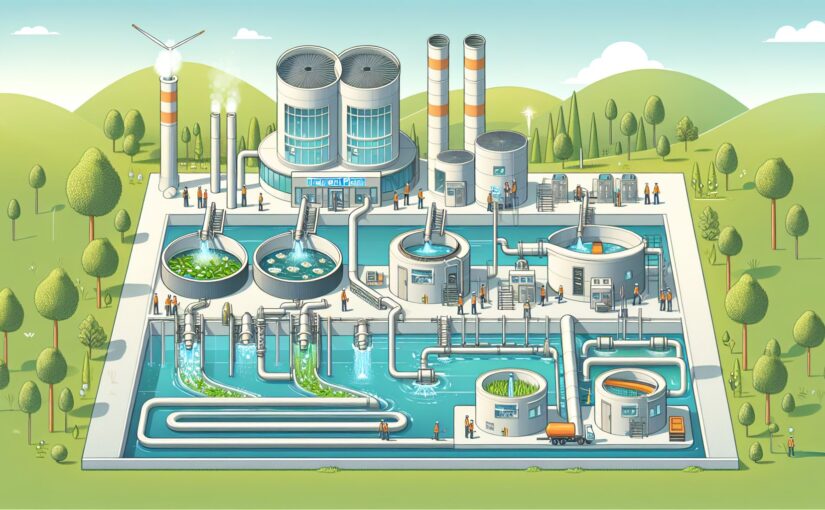Renewable energy is in high demand as the world realizes the implications of relying heavily on non-renewable sources. However, many aren’t aware that one potential source of renewable energy is right under our noses: wastewater. As surprising as it may sound, wastewater – resulting from domestic, industrial, and agricultural practices – could become the powerhouse for sustainable energy generation in future.
Inklings of this fascinating concept were there since 1911, but the potential of wastewater as a renewable energy source has only recently come into the limelight. If harnessed properly, this overlooked resource can generate substantial amounts of energy, alleviating reliance on traditional energy sources and contributing to the global efforts to combat climate change.
How Does It Work?
The primary process involved is referred to as anaerobic digestion, where microorganisms break down organic matter in the absence of oxygen [^1^]. The process not only results in biogas production that can be utilized for energy but also reduces the volume of sludge, the by-product of wastewater treatment, thus lowering disposal costs.
Advancements in technology have further facilitated the capture and use of the by-products of wastewater treatment. For instance, microbial fuel cells (MFCs) allow for the direct conversion of chemical energy from organic matter into electric energy. This has helped in treating wastewater while simultaneously producing an electric current [^2^].
Why Wastewater?
The benefits of utilizing wastewater go beyond just energy generation. Wastewater treatment plants, for instance, are among the largest consumers of energy nations worldwide. Thus, generating power from wastewater would offset energy usage at these facilities, reducing costs and carbon footprint. Additionally, any excess power generated can be supplied back to the grid or used elsewhere.
Moreover, the process helps in removing pollutants from the water, creating a win-win situation— renewable energy generation plus cleaner water. This could have a profound impact on less developed countries, where water treatment is still a challenge. Further, it can enhance their efforts to bolster renewable energy sources and mitigate environmental challenges [^3^].
In Conclusion
Renewable energy from wastewater is an exciting prospect that can transform our approach towards wastewater management and renewable energy generation. It is an area yet to be fully exploited, and with continued research and technological advancements, the future holds great promise.
This endeavor towards renewable energy from wastewater will, however, require policy support, investments, and a broad understanding of its potential benefits and applicability. Together with other renewable energy sources, it needs to be considered as an integral part of our transition towards sustainable energy.
Remember, every drop of water matters, especially if it can generate power!!
[^1^]: Anaerobic Digestion
